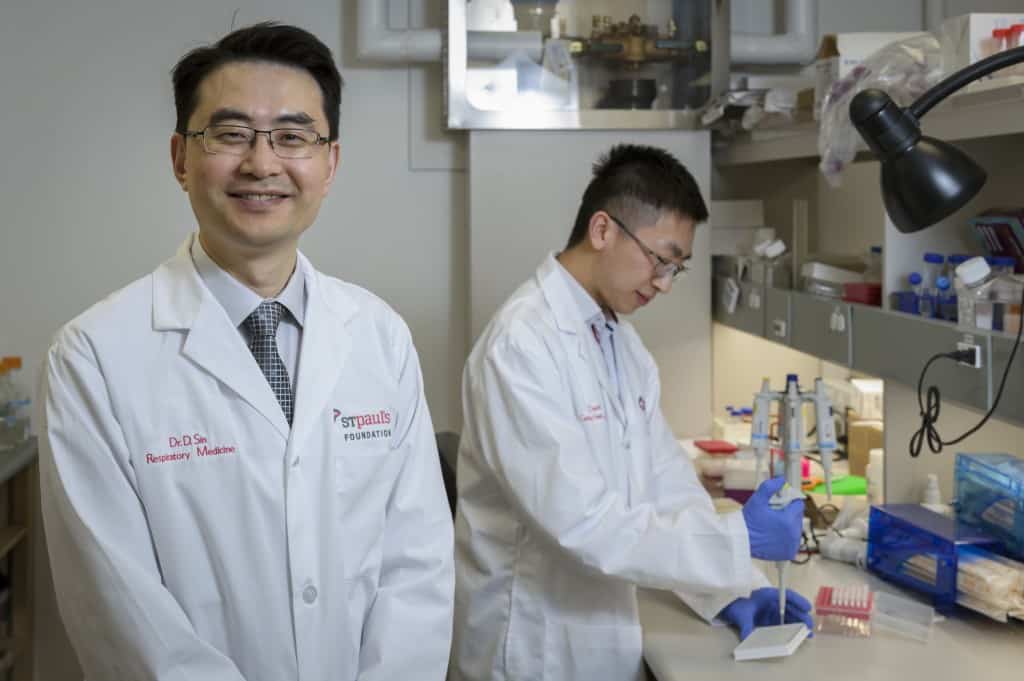St. Paul’s is renowned for its compassionate care. But we are also a research powerhouse. In this regular feature, we’ll look at some of the most exciting made-at-St-Paul’s studies, breakthroughs, and discoveries.
Hope and healing for people with COPD, asthma, and COVID-19
Dr. Don Sin, the De Lazzari Chair at the Centre for Heart Lung Innovation at St. Paul’s, has just finished a small but compelling trial that holds significant promise for people with chronic lung disease and COVID-19. For those without a background in respiratory medicine, a little primer will help shed light on the significance of the team’s findings.
First: people with chronic airway diseases like chronic obstructive pulmonary disease (COPD) and asthma take drugs that relax and open the airways making it easier to breathe. Puffers are typically used to deliver inhaled corticosteroids (IHCs) and long-acting beta-adrenoceptor agonists (LABAs).
Second: people with COPD who get COVID-19 are more likely to have severe illness or death.
Third: ACE-2 is a protein on the surface of many types of cells including those in the nose, mouth, and lungs. ACE-2 is the receptor – the front door if you will – that lets the coronavirus into the body. If you have more ACE-2 receptors, you are more susceptible to getting the virus, and becoming sick with COVID.
The team began a small randomized study to assess people with COVID-19 (and those recovering from it) who also use IHCs. Are they dangerous in this situation? Could there be benefits to using them?
They found that IHCs used in tandem with LABAs may be effective in reducing both COVID-19 susceptibility and the severity of its long-term symptoms. This dovetails with one of their previous findings: that people with COPD have more ACE-2 receptors. Using IHCs can help to reduce the number of ACE-2 receptors. The inference is that with fewer receptors, you may have less risk of contracting the virus.
If you or a loved one use a puffer, here’s the bottom line: keep using it during the pandemic. In addition to helping you breathe easier now, it may help reduce the risk of getting severe COVID-19.
With that in mind, the next question is: could IHCs protect not just against severe disease, but against getting COVID in the first place? And if so, which ones might be most effective? This remains to be seen. But the team is hard at work looking for answers.
Lastly: The RNA sequencing required for this research was funded by generous donors to our COVID-19 Response Fund. Thank you!
Your donations make it possible to pursue this life-changing research. Please give today!
